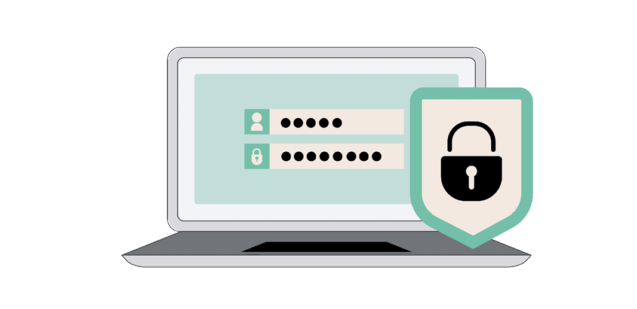Categories

By the time your child graduates from high school, she may be able to calculate the adjacent angle to the hypotenuse of a right triangle, but will she be able to balance her checkbook? While kids may learn impressive advanced math in school, the fundamentals of understanding and managing money often fall to the wayside. If you want your children to be savvy about personal finances, you will likely need to teach them yourself.
In some families, the subject of money is taboo. Parents are reluctant to share their past and current struggles with their children for a variety of reasons. As a result, financial mistakes that are avoidable may end up being repeated generation after generation.
Fortunately, you don’t have to be a financial guru to start teaching your kids about money. You don’t even need to have your own financial affairs completely in order. It’s better to begin now, so you don’t miss valuable opportunities to instill good habits in your children and let them start practicing.
Just dive in.
What is Financial Literacy?
“Financial Literacy” is a trending phrase you may have heard a time or two — but what is it? Financial Literacy refers to the knowledge that allows you to make responsible decisions about spending, saving, credit, debt, and budgeting. In practical terms, it means knowing how to set up a budget, how to operate a checking account, and how credit works. It also includes understanding how to set, work towards, and achieve financial goals. To the point: it simply means establishing good money habits to achieve your financial dreams, goals and aspirations.
If you had a good grasp of all these things before you launched from your family of origin, you were in a fortunate minority. Think for a moment what an accomplishment it would be, and what a great gift to your children, to send them into young adulthood with a solid grasp on these concepts.
Tips for Teaching Your Kids Financial Literacy
Here are five things to keep in mind as you commit to teaching your child good money habits.
It is never too early to start
Even young children who cannot grasp the more abstract concepts of finance can learn important basics. With young children, consider a three jar system. This system entails three glass jars, labeled: give, save, and spend. It’s helpful if the jars are clear, as opposed to a traditional piggy bank, because it allows your little ones to actually see the money and watch it accumulate.
Chances are the money your kids use to fill these jars will come from you or any gifts they receive at special holidays — especially if they are very young. An allowance may be a good option to consider so they receive a regular “income” to aid in teaching good money habits. But that is completely up to you!
The main point is that as soon as your kids are old enough to grasp that there is a thing called money, they are old enough to start learning about it. Engage your child in conversations about when to take money out and which jar to use for what. In this simple way, you are teaching budgeting, saving, and generosity all at once.
It is never too late to start.
Until your children are financially independent, you have opportunities to teach them financial lessons. In fact, you are always teaching them financial lessons (whether you realize it or not), so make sure you are teaching them ones that will set them up for success. If your adolescent has a job of any kind — even just occasional babysitting or lawn mowing, he will benefit from having a checking account of his own. A simple account with no minimum balance requirements or restrictions on deposits or withdrawals is the most practical way to go. A debit card is also an excellent financial tool as it limits purchases to funds available in the account.
Work with your teen to set some short- and medium-term goals. Then, help them devise a plan to reach those goals and track their progress. This will involve many of the same financial tactics you use as an adult — adjusted to an age-appropriate level. A few practical examples:
How can they cut expenses? Help them distinguish needs from wants. That can be easier to see if there is an important goal established. “I really need that new outfit” seems reasonable until it postpones her ability to buy her first car.
How can they earn more income? A Saturday babysitting job can generate enough money to cover the cost of a night at the movies with their friends.
Financial literacy is essential for the future.
There is a constant debate around how long it takes to form a habit, but one thing is for sure — it takes time! It does not happen overnight, but instead, requires continuous repetition in behavior. The same concept applies to establishing good money habits. Teaching your child now will set them up for success in the future. Since their knowledge will continue to mature as they get older, having good money habits as their cornerstone will put them on the right course for achieving financial stability as an adult.
Neither you nor your teen needs to learn everything all at once. In fact, embracing the posture of being a life-long learner is more valuable. So, start the conversation now. Find resources to support you. Building good habits now will pay off for years to come.
Mistakes are an essential part of the process.
Sometimes parents avoid engaging their kids in learning about finance because we worry they might make mistakes — big ones. But what if, instead of worrying about those missteps, we expected and accepted them. Sure, that’s easier said than done, but consider the alternative. If your child never has the opportunity to make (and learn from) his own mistakes while under your supervision, then what will happen when he is on his own? Mistakes are inevitable, but while your kids are under your roof and you can support them through the learning process, the stakes are lower.
Establishing a joint savings or checking account with your child allows you to oversee how your kids are managing their money. Have regular, ongoing conversations with your teens about how they are progressing (or struggling to progress) toward their goals. Affirm them for wise decisions and positive outcomes. Practice patience and keep a dialogue open when there are mistakes. If you see your child making impulse purchases that prevent her from reaching her financial goals, address it. But you might not need to say much: Realizing she missed out on a great concert or a fun trip because she squandered her money on lattes and a pair of designer jeans can be more impactful than words. Experience is the best teacher.
You are your child’s most important teacher and lesson.
OK, maybe experience is the second-best teacher. You are the first. Talk with your teen and young-adult children about the rationale for financial decisions you are making. If you’ve made mistakes in the past, don’t shy away from talking about them — especially the ones that taught you valuable lessons you might not have learned otherwise. Acknowledging your own mistakes and imperfections might make it less scary for your children to come to you when they blunder. If they have questions you don’t know the answers to, that’s nothing to be ashamed of. Learn together. The internet and your local library are full of resources to explore all your questions from how to build a stronger savings account and the power of compounding interest to market analysis and portfolio development.
And of course, Spero is ready to partner with you through these foundational financial conversations with your kids. Schedule an appointment today, and plan to bring them with you. We are here for you and your family.



